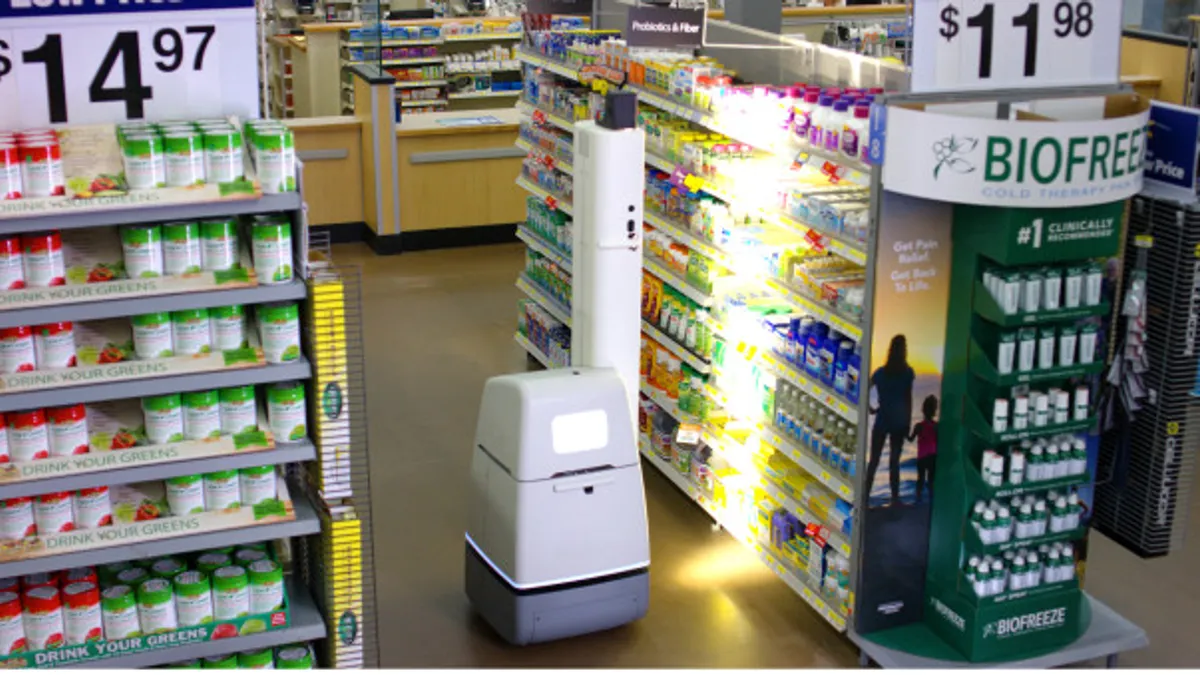Dive Brief:
- A series of spry replenishment robots will soon be appearing in 50 Walmart locations, in order to more quickly stock product faster and save employees from searching for missing items, PYMNTS.com reported last week.
- About the size of leprechauns at just two feet tall, the robots come equipped with cameras to scan aisles, assessing the level of stock, amount of missing products, and misplaced items abandoned by shoppers in order to facilitate successful sales.
- The robots are alleged to be 50% more productive than humans, increasing inventory accuracy levels and scanning shelves three times faster than in-store staff.
Dive Insight:
Supermarket robots that maintain high inventory levels have been around for a while, tackling the dull work of loading cans and boxes on shelves. Manufacturing also relies on industrial robots, as the shortage of skilled workers could otherwise disrupt the supply chain. In fact, their presence is already so accepted that industry watchdogs are working on ensuring a seamless transition to human-robot teams on plant floors, planning ahead for any physical complexities that could befall the pair.
There seem to be two schools of thought when it comes to robots in the workplace: relief, or repulsion. While some workers believe they will soon be replaced by robots — which is possible, especially in those industries that involve assembly — others welcome the relief offered by a moving machine capable of tirelessly managing repetitive tasks. The question for many is whether advanced training for more complex tasks is available and appealing, an issue that remains unaddressed by legislation and company policy.
Unions protecting dockworkers have demanded retraining should technology move in, but few industries these days have a strong active advocate they support to look after their interests. At present, statistics relating to potentially lost jobs remain projected rather than actual. By the time robots become commonplace, retraining options to help humans acclimate to robot coworkers may be necessary.














